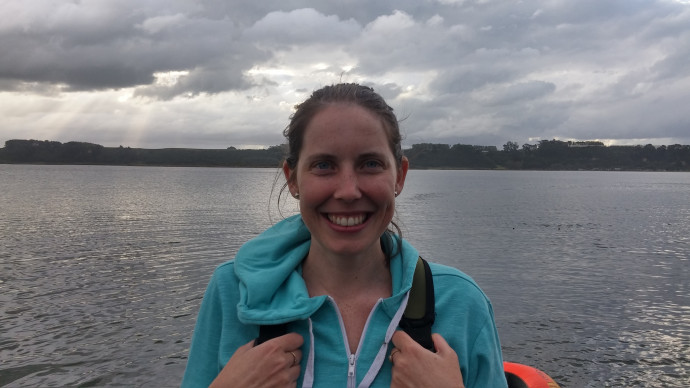Rebecca Gladstone-Gallagher

2018: Dr Rebecca Gladstone-Gallagher, University of Auckland, has been awarded a Rutherford Foundation postdoctoral fellowship for research entitled: “Assessing the role of biodiversity in maintaining coastal ecosystem health in the Anthropocene.”

Dr Rebecca Gladstone-Gallagher (Photo: Supplied)
Human impacts continue to threaten species and ecosystems around Aotearoa New Zealand, including the coastal seafloor. Our coasts provide areas of recreation, food provisioning, and cultural significance. The biodiversity of these areas, and the benefits they provide, are increasingly jeopardised by degradation and disturbance of the seafloor, caused by overfishing, pollutant and sediment runoffs.
Biodiversity is important in maintaining healthy, functional ecosystems, and ecology has recently moved from conserving specific species to protecting functions within the ecosystem. If there is more than one species providing the same function (or ‘job’) on the seafloor, the coastal seafloor ecosystem may be more resilient to disturbances. However, the relationship between biodiversity and the resilience of ecosystem functions is poorly understood. Protecting ecosystem functions at the detriment of species conservation may be short-sighted unless we have better understanding of the system’s resilience at multiple levels.
In this fellowship, Dr Rebecca Gladstone-Gallagher from University of Auckland will investigate the factors that contribute to the resilience at individual, community and population level. She will compare Aotearoa’s highly biodiverse seafloor with that of Finland, where there is low biodiversity, in order to model ecosystem resilience in different scenarios. In both locations, she will examine how different species tolerate stress, their population connectivity and spread, and how they respond to different levels of environmental disturbance. The resulting model will enable assessment of seafloor vulnerability and highlight how current coastal biodiversity can provide resilience to future anthropogenic impact. The research will contribute to better decision making around the setting of acceptable limits for human disturbance of our coastal ecosystems.
